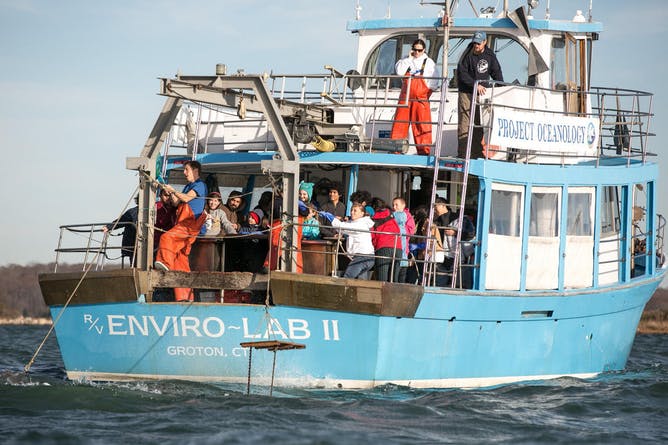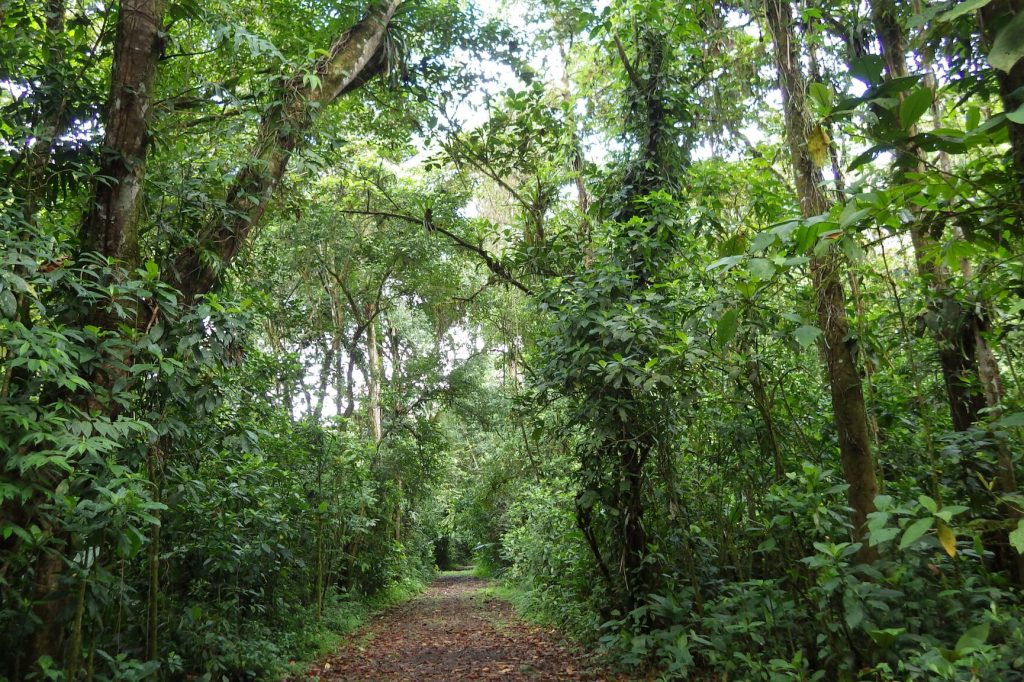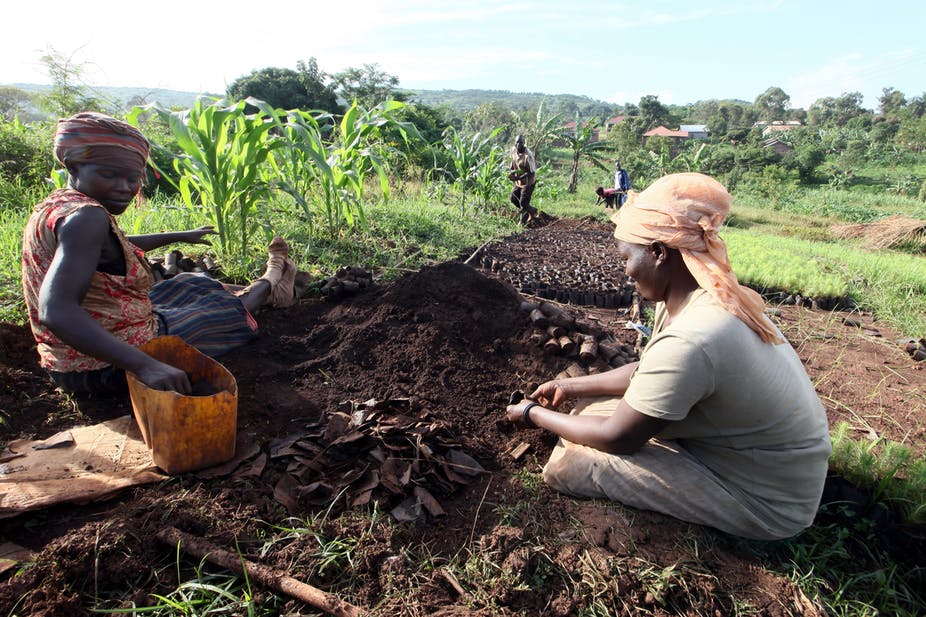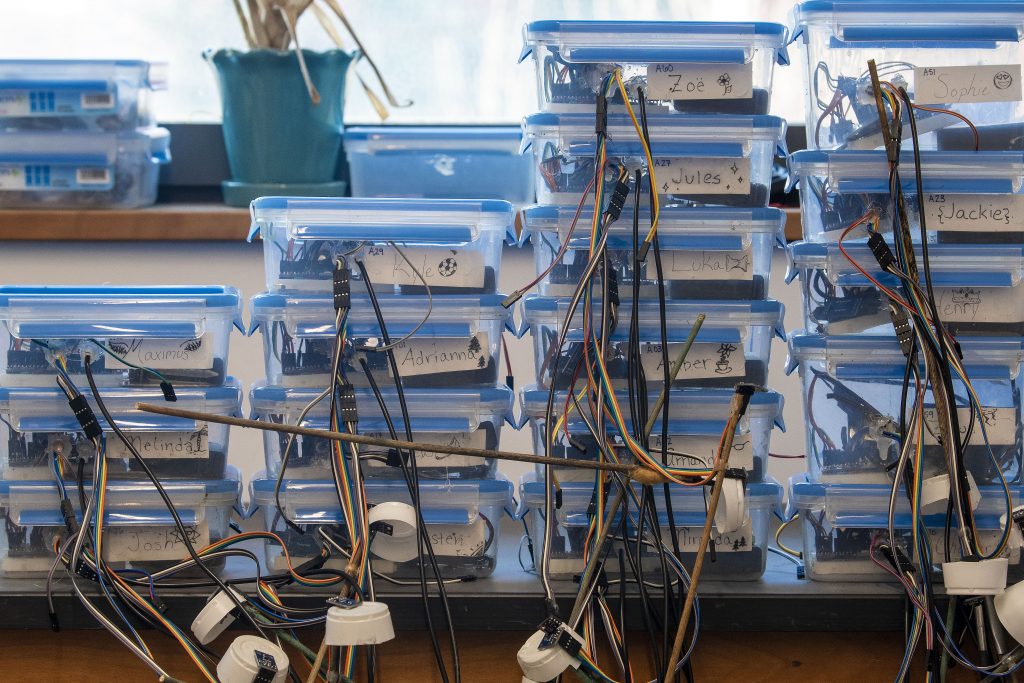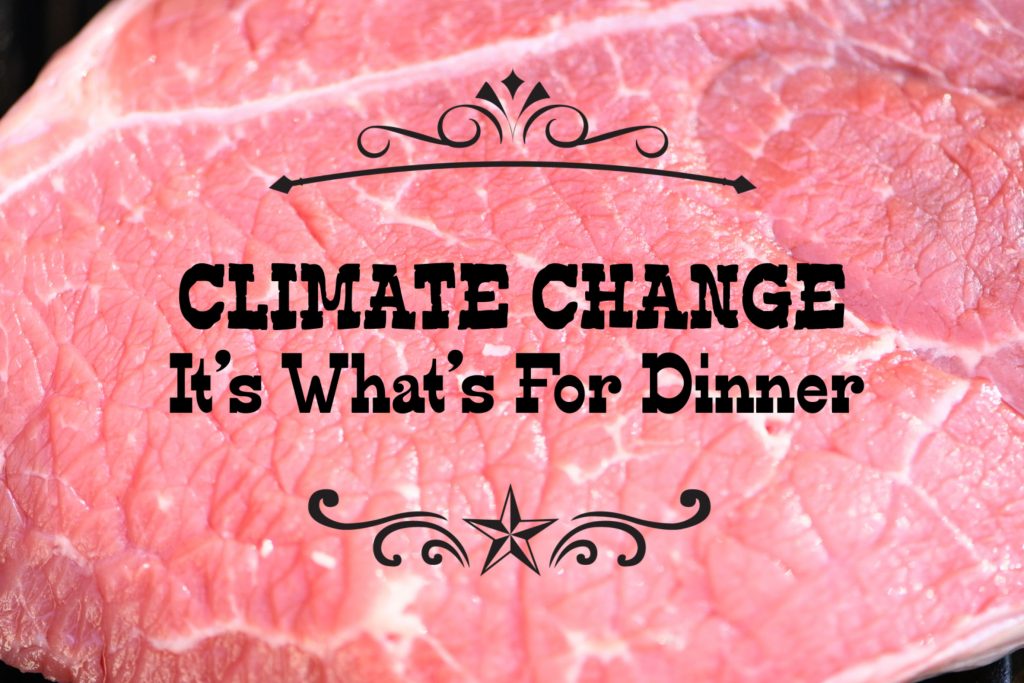Sustainability
Citizen Science Shows Climate Change is Rapidly Reshaping Long Island Sound
At 0.45 degrees Celsius per decade, the Long Island Sound is warming four times faster than the global ocean, according to a UConn study based on four decades of data.
April 3, 2019 | Hannes Baumann, Marine Sciences, College of Liberal Arts and Sciences
Planting the CEAD: Marketing Sustainability Efforts
In order to build awareness for UConn Extension within the university community, a team of marketing students will host Connecticut Environmental Action Day on March 29.
March 27, 2019 | Elaina Hancock
Thoreau’s Great Insight for the Anthropocene: Wildness is an Attitude, not a Place
The mantra 'In Wildness is the preservation of the world' can remain true, provided we ask ourselves what we mean by wildness and what we’re trying to preserve, writes Robert Thorson at UConn.
March 14, 2019 | Robert M. Thorson, Department of Geosciences
Tropical Forests Naturally Regrow Quickly, But Without Species Variety
Forests recover growth in a few decades, but it may take centuries before the species diversity returns to the original composition, according to a study co-authored by Robin Chazdon of UConn.
March 6, 2019 | Combined Reports
Op-ed: Why Storage and Handling are to Blame for Uganda’s Poor Quality Seed
Monitoring mechanisms and collective action by stakeholders are key for better seeds, writes Nathan Fiala of the College of Agriculture, Health, and Natural Resources.
February 27, 2019 | Nathan Fiala, Department of Agricultural and Resource Economics
The Birds Who Seek Out Goldilocks Fires
Black-backed woodpeckers prefer forests that are burned just right – not too hot, not too cold. But as wildfires become more intense, megafires are not creating a sufficient diversity of habitats.
January 29, 2019 | Elaina Hancock
Dining Services Ends Use Of Plastic Bags
The change supports the University’s ongoing sustainable efforts and is the result of a joint effort between Dining Services and the Zero Waste Campaign of UConnPIRG.
January 18, 2019 | Mike Enright '88 (CLAS), University Communications
More Data, Lower Cost – DIY Electronics Tackle Global Change
UConn researchers developed low-cost environmental sensor units to facilitate the collection of fine-scale data. Now they're making them available to others.
January 17, 2019 | Elaina Hancock
Changing Air Quality in the Land of Steady Habits
Although ozone season is a couple of months away, Connecticut's air quality in winter is negatively impacted by the amount of wood burned as fuel, says engineering professor Kristina Wagstrom.
January 8, 2019 | Elaina Hancock
Climate Change: It (Doesn’t Have to Be) What’s for Dinner
Reducing your greenhouse gas emissions can be as easy as changing the types of food you buy and eat, according to a recent study led by UConn researchers.
